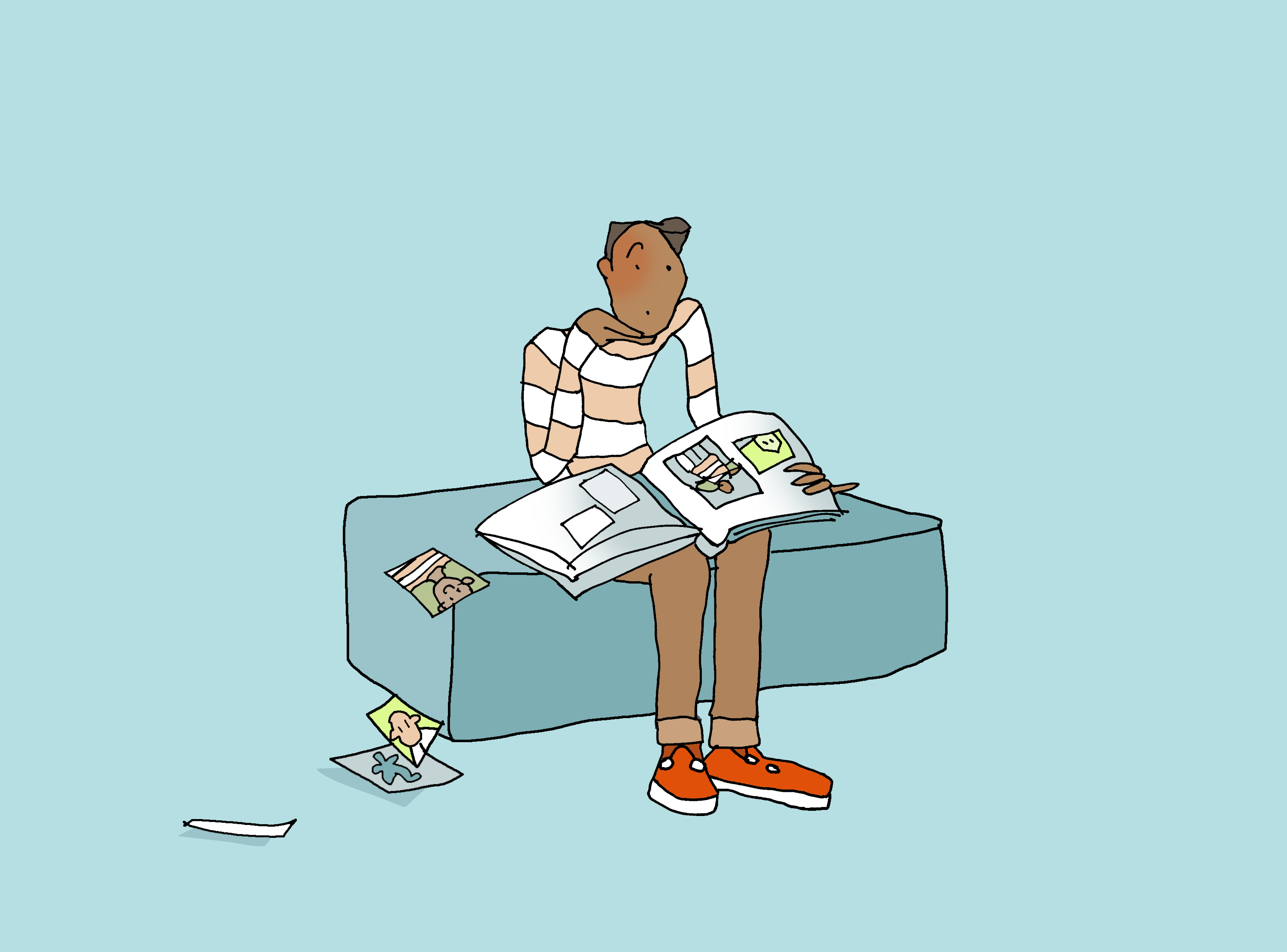Ending violence / Dealing with violence in your childhood home:
You may notice that you have low self-esteem, problems with yourself and with life, and perhaps with other people, too. You may ask yourself: “Why is that?” This text can help you find some answers.
Something feels off – why?
Maybe you have low self-esteem. You can't cope. You don't like yourself. You are very critical of yourself. You put yourself down when you're stressed. Or you feel helpless all the time. You can't regulate your fear or anger or shame. Your behavior keeps getting you into trouble. Or you find it very difficult to be in relationships. Or you keep having problems in relationships. You are very distrustful. Or you are reckless. You get into fights all the time. Or you over-adapt and lose yourself in relationships.
You sense that something is off. You ask yourself why that is. Then it's a good idea to look back and see when it actually started.
What – and when – are the root causes?
When you look back, it's a good idea to go back as far as possible. To your childhood. As far back as you can remember. And even further back. How were you as a baby, as a toddler? What do you know about that time? Do you have pictures? How do you look in the pictures? How was that child feeling? How did your parents feel about you? How did your brothers and sisters? Or were there other important people? What kind of relationship did you have with them? Who was important?
Even if you only have a few memories, look for images or feelings you associate with that time. No childhood is all bliss. And even parents who fundamentally had good intentions may have gotten some things wrong. Those things will have left a mark.
What should I look for?
You can surely imagine that sexual violence or physical violence can have harmful effects on children. You can probably also imagine that it can be awful for children to be neglected or abandoned, or to be constantly scolded or otherwise put down. These are the blatant forms of family violence.
But there is also subtle, hidden violence. These are behaviors that can also be very harmful, but are very difficult to recognize if you don't look closely. We wrote a text about hidden violence in the family, which we highly recommend to you. We also strongly encourage you to read this text about how children adapt to unsafe homes.
What if my childhood was nothing but beautiful?
If you think that everything was wonderful in your childhood, then you've probably blocked something out. In all families, pleasant and unpleasant things happen. If you completely block out the unpleasant, you won't get anywhere with your problems. The brain has a habit of wanting to block out the unpleasant. This makes sense: We feel better when we see the pleasant things.
But the unpleasant stuff might hang over us like a dark cloud in the background and prevents us from living a happy life. Then we should look at it. It is also possible that you have intrusive flashbacks of bad or very stressful events that you don't remember.
I don't want to demonize my parents
This is not about blaming and villainizing your parents. They are human beings, and human beings make mistakes. Many people do not really get along with themselves. They show that in their behavior toward their children.
How do I develop compassion for myself as a child?
As children, we have the ability to love our parents. However, sometimes parents do things that are not lovable. But it is very important for children to love their parents because they need their parents to survive. And so it is very understandable that you blocked out your parents' unlovable aspects.
Let's say that even today you are not willing to look at where your parents made mistakes and showed harmful behavior. Then you are not taking the child you once were seriously. No matter how good the parents' intentions were, this child suffered.
If you want to build a better relationship with yourself, you have to develop compassion for this child. And you can only do that if you open your eyes to how you suffered.
Can I trust myself and my memories?
Suppose that members of your family have always told you that they don't mean you any harm, and that they actually want the best for you. They may have denied that they did anything wrong at all. Or they tell you that it wasn't their intention, and yet they keep doing it or kept doing it. It is logical then that you now question your feelings and your experience.
It's all the more important that you look out for inconsistencies like a detective. For example: Your mother told you that you were always a ray of sunshine. But you constantly had a bad feeling. You remember one night when you were suddenly very scared. And then you were somehow scolded. That doesn't fit with the sunshine image.
Pay attention to all such inconsistencies, to all unpleasant images or feelings that you encounter. They show you that your world was not so perfect at that time, even if others paint it as a perfect world.